Analyzing the Intricacies of the Kingdom of the Gods Webtoon
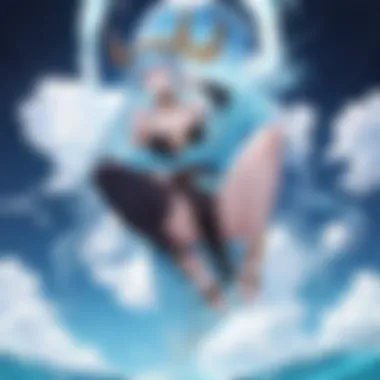
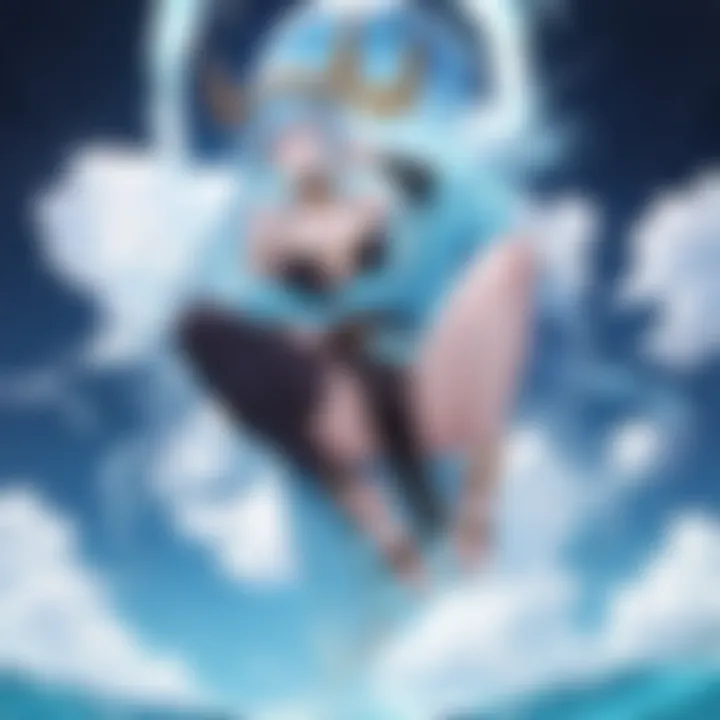
Intro
The realm of webtoons has seen a meteoric rise in popularity over the last few years, driven not only by their accessibility but also by the vast variety of narratives they offer. Among these, Kingdom of the Gods stands out as a compelling tale that combines mythology, action, and a rich visual aesthetic. This article seeks to delve into the layers of this webtoon, analyzing its characters and themes while drawing connections to broader cultural contexts. By journeying through its narrative carefully, readers can gain insights not just into the story itself but also its resonance with audiences today.
Character Analysis
Overview of Character Development
Kingdom of the Gods delivers a whirlwind of character arcs that intertwine with the plot's heart. Each figure, from the marked heroes to the subtle supporting roles, is expertly crafted to reflect deeper allegories about human nature and ambition. As the story unfolds, we witness the evolution of characters like Han Hyo, whose growth is depicted not merely as the journey of a warrior but as an exploration of personal sacrifice and the pursuit of justice.
The progression in their personalities showcases themes of resilience and betrayal. Through the chapters, Han Hyo transitions from a naive swordsman to a calculated strategist shaped by his experiences. His relationship with other key figures, particularly with the enigmatic goddess Naerim, further exemplifies the complexities of trust and loyalty.
Key Relationships and Dynamics
Relationships serve as a backbone to the narrative's tension. Each interaction is loaded with emotional weight, reflecting the intricacies of alliance and animosity in a world fraught with conflict. For instance, Han Hyo’s rivalry with the powerful deity, Geumseong, reveals more than mere antagonism; it embodies a clash of ideals and ambitions. This dynamic keeps the audience on edge, reminiscent of classic rivalries that often appear in folklore.
- Han Hyo and Naerim: Their bond dances on the line between affection and responsibility. It illustrates the clash between their desires and duties, a recurring motif that shapes the narrative.
- Han Hyo and Geumseong: Represents a battle against fate itself, highlighting the barriers that personality traits can create, such as stubbornness and pride.
These relationships not only drive the plot but also create a deep emotional connection for the audience, drawing them into this richly developed universe.
Thematic Exploration
Central Themes and Messages
Thematically, Kingdom of the Gods is a patchwork of grand narratives. It explores the ever-relevant ideas of power, morality, and the human condition through a lens that remains engaging for modern viewers. At its core, the webtoon raises questions about destiny and choice. Characters often find themselves at crossroads, making decisions that reflect their innermost beliefs and desires. This creates a fascinating dialogue about whether one can truly shape their own fate.
Furthermore, themes of sacrifice and redemption are woven throughout. Characters face choices that test their integrity and resolve, ultimately leading them towards paths of atonement or deeper darkness. As they navigate these moral quandaries, audiences are led into reflections of their own choices, engaging with the narrative on a personal level.
Cultural Context and Influences
The webtoon draws heavily from Korean mythology and lore, embedding cultural nuances within its storytelling framework. By tapping into tales of gods and heroes, it establishes a familiar ground for audiences while simultaneously expanding their worldview. The cultural references enrich the narrative and allow readers to engage with it in a multifaceted manner.
This melding of old and new not only honors the traditional stories but also paves the way for innovative storytelling that resonates with a global audience. Themes such as communal values versus individuality echo throughout, reflecting contemporary society's struggles while maintaining roots in historical contexts.
"The great tapestry of life is woven from threads of past and present, where every individual's narrative intersects with the universe's grand design."
Intro to Kingdom of the Gods
The Kingdom of the Gods webtoon represents a unique blend of artistry and storytelling within the ever-expanding universe of digital comics. For enthusiasts and casual readers alike, its allure lies not only in the intricate plot but also in the rich tapestry of characters that breathe life into the narrative. Understanding the introduction to this webtoon sets the stage for a deeper appreciation of the themes and artistry that unfolds as the story progresses.
In this section, we’ll unpack the significance of Kingdom of the Gods, highlighting key elements that contribute to its success. The webtoon is more than mere entertainment; it reflects cultural narratives that resonate with a wide audience. This connection is fundamental to grasping why the webtoon has garnered such a dedicated fanbase.
One consideration is the skillful way the story intertwines issues related to power dynamics and morality. Readers find themselves not just following the tale, but also engaging with moral questions that surface throughout. This duality enhances the experience, fostering discussions that go beyond the screen.
Furthermore, the artistic style plays an essential role in illustrating the complexities of the narrative. The vibrant visuals not only serve to capture attention but also to communicate the emotional undertones of scenes that, at times, words alone cannot convey. Engaging with the webtoon means immersing oneself in this world, where visual aesthetics amplify the themes woven into the story.
"Art in Kingdom of the Gods is not merely decorative; it is integral to the storytelling process, revealing layers of meaning obscured in dialogue."
Additionally, the webtoon’s cultural references enrich the narrative. Readers are often exposed to historical and mythological elements that elevate the storytelling from mere fantasy to a reflection of shared human experiences. These connections are crucial for building a relatable narrative that resonates across different cultures.
Origins of the Webtoon
Understanding the origins of Kingdom of the Gods is crucial for grasping its significance within the webtoon landscape. This section dives into how the webtoon was conceived, the influences that shaped it, and the initial perceptions it garnered upon release. It establishes a foundational context that enhances readers' enjoyment and comprehension of its complex narratives and themes.
Author's Background
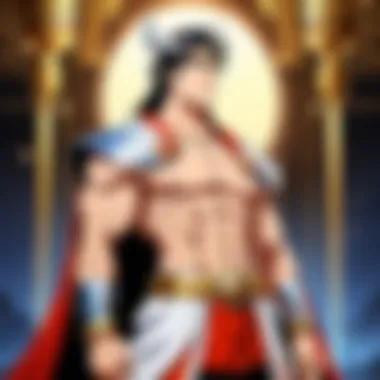
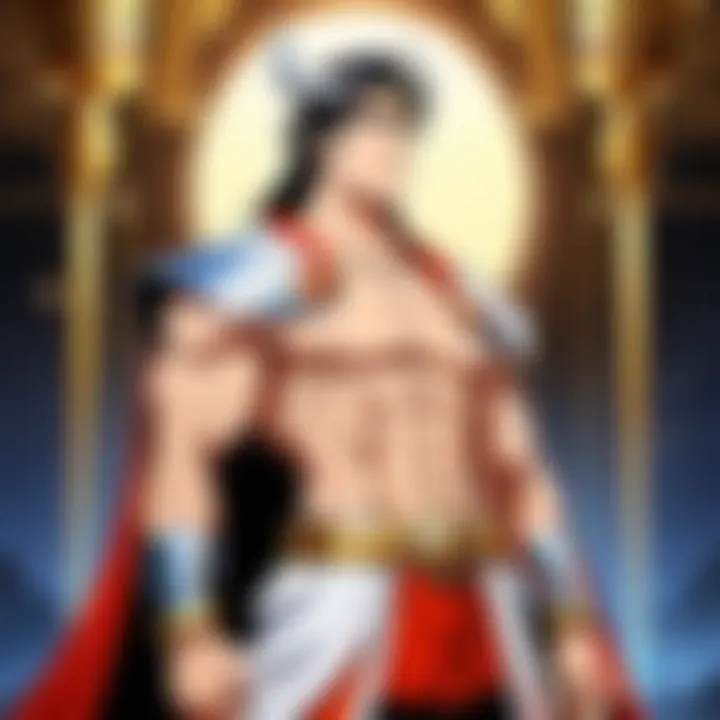
The brain behind Kingdom of the Gods is an accomplished artist known as Kim Yong-ki. Before venturing into webtoons, Kim had considerable experience and success in the manhwa industry. His familiarity with storytelling and world-building plays a substantial role in shaping the webtoon’s narrative depth. Drawing heavily from Korean mythology and folklore, his background influences the myriad characters and intricate plotlines that captivate audiences today.
Kim’s previous works, though less recognized, exhibit a clear evolution in his style. He was already adept at blending humor and adventure, but in this project, he took bold steps to explore darker themes, using characters that resonate with the audience on multiple emotional levels. This approach not only enhances the storyline but also invites introspection about morality and power.
Initial Reception
Upon its release, Kingdom of the Gods immediately captured reader attention across various platforms. Its engaging art style and fresh storytelling approach, rooted in a mythological framework, set it apart from contemporaries. Initially, reviews varied; while some praised its ambition and artistic endeavor, others critiqued its pacing and character development. However, this polarized reception meant that conversations around the webtoon flourished.
Readers quickly took to forums and social media to discuss the unfolding narrative, reflecting a grassroots enthusiasm that filled online spaces. The webtoon sparked a flurry of fan works, which included art, fanfiction, and analyses that enhanced engagement and anticipation for upcoming chapters. It became clear that the initial mixed reviews were just the tip of the iceberg, as the community began to grow, nurturing a robust fan base eager to delve deeper into its story.
Publication History
Kingdom of the Gods launched in 2018 on platforms like Naver Webtoon, and it was met with immediate interest due to its blend of genres. The publication began to flourish as chapters were released weekly, allowing fans to follow the evolving storyline in real time. As the narrative progressed, it garnered translation into multiple languages, expanding its reach beyond South Korea and attracting a global audience.
The webtoon’s consistent updates have maintained momentum, securing its place within the crowded webtoon market. Special events and collaborations—such as limited edition merchandise and crossover illustrations with other popular projects—have helped keep the excitement alive, illustrating how Kingdom of the Gods not only stands out but also interacts with its environment in a dynamic, evolving manner.
In summary, the origins of Kingdom of the Gods provide a valuable perspective on its current popular status and thematic relevance within the broader culture of webtoons. Understanding where it comes from deepens the appreciation for its complex narratives and fosters a conversation about its future.
Plot Overview
The plot of Kingdom of the Gods serves as the backbone of its narrative, intricately weaving together events and character arcs that delight both casual readers and die-hard fans alike. Understanding its plot is essential because it provides a framework to decode the themes and the motivation behind the characters’ actions. The story revolves around a richly constructed world influenced by both historical elements and mythological undertones, contributing to a narrative that is both engaging and thought-provoking.
Main Story Arcs
In Kingdom of the Gods, multiple story arcs intertwine to create a dynamic narrative landscape. At its core, we find the protagonist navigating a realm where gods and mortals coalesce, often leading to epic confrontations and moral quandaries. One of the pivotal arcs involves the protagonist's quest for vengeance after a personal tragedy, showcasing intense emotional stakes that keep readers riveted. Through immersive storytelling, the series explores the themes of betrayal, redemption, and the struggle for power, all while grappling with human emotions amid a supernatural backdrop.
Another significant narrative thread is the factional conflicts between different divine beings. Characters like the cunning and ambitious gods often represent various societal ideals and failings, providing depth to their interactions and driving the action forward. Readers witness shifting alliances and moral dilemmas that compel them to ponder the implications of authority and the ethics intertwined with power.
Character Motivations
Character motivations are as intricate as the plot itself. Each figure introduced comes with their own set of desires, fears, and backstories that propel the narrative and catalyze conflict within the story. For example, while some characters may seem adversarial, their motivations frequently reveal a backstory that invokes sympathy—ranging from a desire for revenge to an inability to escape from a burdensome fate. This complexity is not only engaging but underscores the human condition as reflected in mythological narratives.
- Personal Growth: The protagonist’s development from a naive figure to one who grapples with moral complexity is a central theme. As they encounter gods who wield immense power recklessly, we see them question their ideals and grow with each encounter.
- Struggle for Recognition: Characters such as the ambitious antagonist may strive for acknowledgment from their divine counterparts, adapting their methods to shield their weaknesses and capitalize on their strengths. This internal conflict relates to the greater struggle for authority in a divine pantheon, reflective of societal power dynamics.
By delving into characterization, readers obtain a supplementary view of the overarching themes such as power, morality, and human resilience. The rich motivations reveal not only the characters' intentions but also reflect the cultural narratives that shape them, enriching the reader's experience.
In reflecting on the intricate plotting and character motivations within Kingdom of the Gods, it's evident that the webtoon's appeal lies heavily in how it merges personal stories with larger existential questions. This profound exploration invites readers on a journey that is both captivating and illuminating.
Character Analysis
Character analysis serves a pivotal role in understanding the intricacies of the "Kingdom of the Gods" webtoon. While the plot may captivate readers, it is the characters who breathe life into the narrative. Their journeys, motivations, and interactions reflect broader themes and cultural narratives. An in-depth examination of the characters allows fans to unravel motivations and conflicts, which enhances the overall appreciation of the story. Moreover, analyzing their roles opens a window to explore how personal struggles echo larger societal issues, making the reading experience not just enjoyable, but thought-provoking.
Protagonist Examination
At the center of "Kingdom of the Gods" stands an intriguing protagonist whose complexities are woven intricately into the storyline. This character goes through a transformation that not only shapes their destiny but also influences those around them. From their initial struggles to eventual growth, each phase provides insight into their personality, aspirations, and flaws.
For example, the protagonist grapples with the weight of expectations from both allies and enemies. This relationship dynamic highlights the influence of fate and personal choice, raising questions about free will versus predestination. Readers start to see reflections of their own ambitions and fears in the protagonist's journey, creating a bond that pulls the audience deeper into the narrative.
Antagonists and Conflicts
Antagonists in "Kingdom of the Gods" are more than mere villains; they embody challenges that parallel the protagonist's internal battles. Every clash or confrontation between these opposing forces fosters a deeper understanding of the themes at hand. The conflicts often derive from personal ambitions and moral dilemmas, which resonate on a larger scale.
It’s essential to note that many antagonists are layered; their motivations are not black and white. They raise thought-provoking questions about morality, power, and sacrifice. For instance, one antagonist may be driven by a desire for justice that collides tragically with the protagonist’s path, resulting in a rivalry that transcends the physical realm. This complexity enriches discussions around right and wrong, making the narrative less about clear-cut battles and more about the gray areas that define humanity.
Supporting Characters
Supporting characters in the "Kingdom of the Gods" add depth and resonance to the primary narrative. They not only aid in character development but also help in constructing the world in which the story unfolds. Each supporting character, whether a mentor, ally, or a minor figure, contributes to the overall thematic richness.
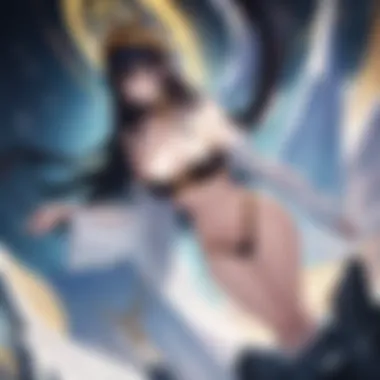
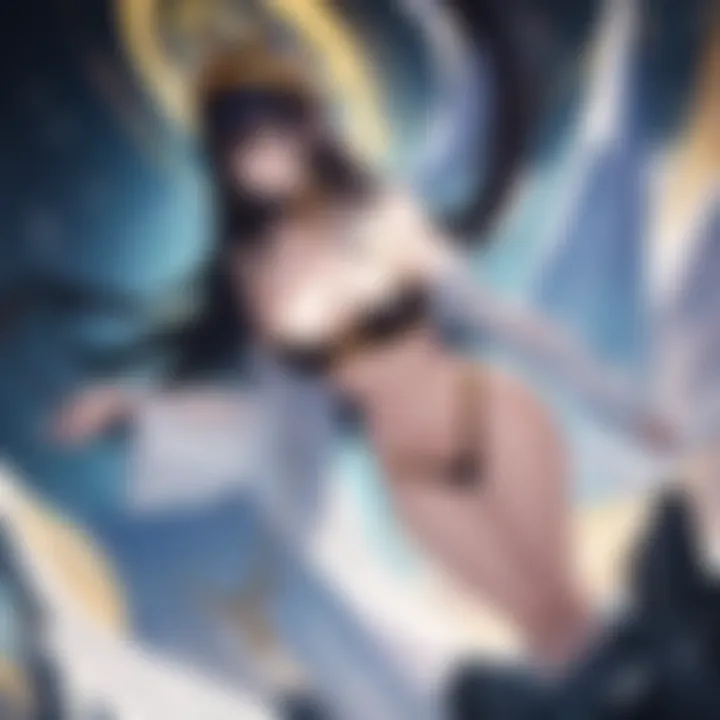
These characters often reflect societal archetypes, providing broader commentary on community, loyalty, and individualism. Some embody ideals for the protagonist to aspire to, while others present cautionary tales. As a result, the interactions among characters point to significant cultural reflections, enhancing the audience's understanding of the stakes involved in the protagonist’s journey.
Overall, the character analysis sheds light on how individual growth, conflicts, and support systems craft a narrative that resonates beyond the pages. Each character acts as a piece of a larger puzzle, contributing to the tapestry that is "Kingdom of the Gods." This exploration underscores the profound nature of storytelling, illustrating that every character serves a purpose in the overarching narrative.
Artistic Style
When it comes to webtoons, artistic style plays a pivotal role in shaping the audience's experience. In the case of "Kingdom of the Gods," the unique illustrations offer more than mere aesthetics—they create an atmosphere deeply intertwined with the narrative. The artistry is not just about what we see but also about how it enhances the storytelling, allowing in-depth character interactions and emotive scenes that resonate powerfully with viewers.
Illustrations and Visual Aesthetics
The illustrations in "Kingdom of the Gods" are striking, merging fluidity with dramatic flair. The artist employs a blend of grace in character designs and intense detail in the backgrounds. For instance, scenes depicting the divine realm often show opulent architecture symbolizing power and authority, whilst the underworld juxtaposes this with stark, chaotic visuals that evoke fear and tension.
The fluidity of motion captured in combat scenes—where actions unfold like a dance—demonstrates the artist's mastery. Characters soar through the air, dancing around each other’s strikes, and every frame feels alive. This dynamic energy not only captivates but pulls the reader into the action, making them feel part of the unfolding drama.
Color Palette and Its Significance
Color choice in "Kingdom of the Gods" is deliberate and strategic. Warm hues often signify unity and warmth in scenes of collaboration, whereas cooler shades hint at betrayal or internal conflict. This intricate play on colors helps deepen the emotional landscape.
- Symbolism of Colors:
- Emotional Impact:
Each color evokes specific emotions and guides the audience’s feelings throughout the experience. The transition from bright colors during moments of hope to darker tones in grim events reinforces the narrative's themes of struggle and triumph.
- Red often portrays danger or passion, particularly during heated confrontations.
- Blue reflects tranquility and wisdom, ideal for scenes with deities imparting knowledge.
"Art is the most beautiful of all lies." - Pablo Picasso
Through the careful and intentional use of illustrations and color palettes, "Kingdom of the Gods" solidifies its identity in the crowded webtoon space. This attention to artistic detail ensures that readers are not only entertained but also emotionally connected to the unfolding story, enhancing their overall engagement with the text.
Thematic Exploration
The thematic exploration of the Kingdom of the Gods webtoon is integral in uncovering the deeper narratives woven throughout its arcs. This section focuses on how various themes, particularly power dynamics and moral quandaries, serve as the backbone of the plot, shaping character arcs while engaging the audience at multiple levels. Understanding these themes enhances readers’ appreciation of the story and its cultural significance, bringing to light how mythology and moral lessons intertwine to reflect contemporary society.
Representation of Power and Morality
In Kingdom of the Gods, the representation of power is intricately tied to morality, which can’t be overlooked. At its core, the webtoon challenges the conventional definitions of good and evil. Characters often find themselves embroiled in dilemmas that force them to question their ethical frameworks. For example, take the character of Baek Hoo, who begins his journey with noble intentions. As he encounters various divine beings and their corrupted nature, he grapples with the morality of power, often leading him to make choices that blur the line between righteousness and betrayal.
- Nuanced Power Struggles: The hierarchy of gods introduces layers of conflict, reflecting the timeless struggle of the weaker against the stronger. This not only serves as a plot device but also as a criticism of real-world power structures, illustrating how authority can corrupt even the purest of hearts.
- Complex Characterization: Characters aren’t simply labeled as heroes or villains; their motivations and actions create a rich tapestry that mirrors the complexities of human nature. For instance, characters who initially appear villainous may have backstories that reveal their tragic motivations, prompting readers to reconsider their preconceived notions of morality.
"Ultimately, the webtoon's exploration of power challenges readers to think critically about their own understanding of right and wrong."
Cultural References and Their Implications
The cultural references throughout Kingdom of the Gods aren’t just decorative; they carry significant implications for how the story is received and interpreted. The webtoon draws from a wealth of mythological lore, incorporating elements from various traditions. This not only enriches the narrative but also invites readers to draw parallels between these ancient tales and modern societal issues.
- Mythological Connections: Characters and settings often echo figures from Korean mythology, enriching the storytelling experience. These references provide greater cultural context and highlight the relevance of tradition in today's world.
- Social Commentary: By intertwining folklore with current events and societal values, the webtoon acts as a mirror for contemporary issues such as injustice, inequality, and the consequences of ambition. This multilayered approach allows the narrative to resonate on both personal and societal levels, creating a dialogue about how we interpret moral lessons across generations.
In essence, the thematic exploration not only enhances the plot but also invites deep reflection on the nuances of power, ethics, and cultural identity that are present within the Kingdom of the Gods.
Comparative Analysis
Engaging in a comparative analysis of the Kingdom of the Gods webtoon provides a unique lens to appreciate its distinctive characteristics alongside other works in similar realms. By juxtaposing this webtoon with others, readers can identify what sets it apart, and what common threads weave it together with its peers. This comparative approach not only highlights the unique narrative techniques or artistic styles at play but also allows for a deeper exploration of how these elements resonate with audiences both familiar and new to the genre.
One significant benefit of this analysis lies in its ability to uncover the influences and inspirations that may have shaped Kingdom of the Gods. By examining similarities and contrasts with other prominent webtoons or manga, readers gain insights into creator methodologies and thematic explorations. Moreover, recognizing these connections enriches one's understanding of storytelling in anime and manga, which is invariably tied to cultural nuances and community dialogues.
Comparison with Other Webtoons
In the vast landscape of webtoons, Kingdom of the Gods stands tall, often compared to titles such as Solo Leveling and The God of High School. While Solo Leveling focuses on individual growth and empowerment within a gaming framework, Kingdom of the Gods dives into expansive mythological narratives, drawing from historical and cultural foundations. This contextual backdrop creates a nuanced tapestry, allowing readers to witness how power dynamics swirl through its characters, shaping their motivations and destinies.
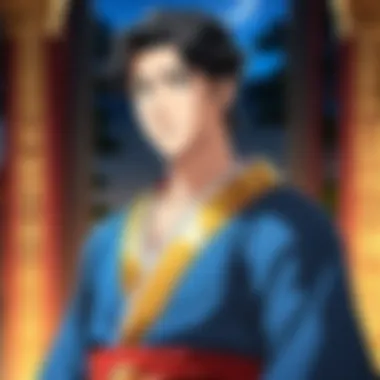
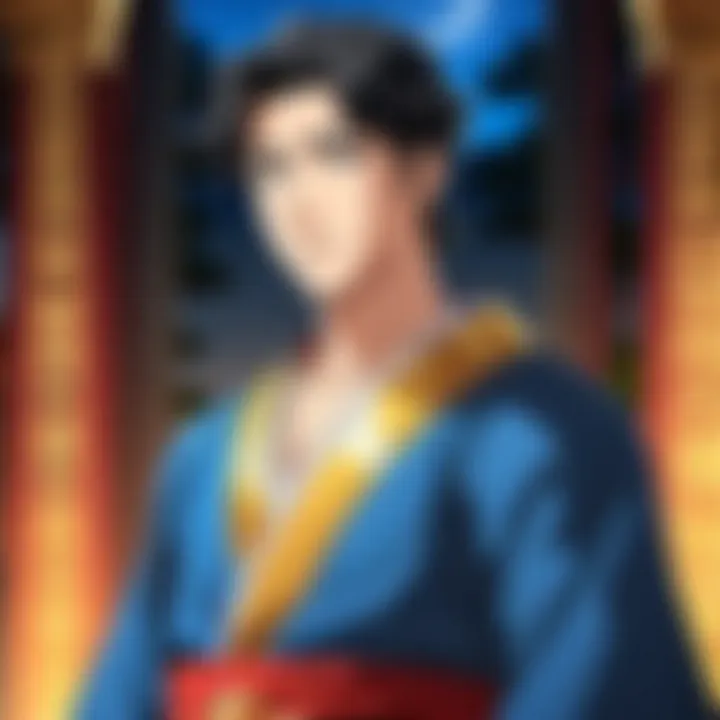
The weaving together of Kingdom of the Gods with other titles doesn't just end with thematic parallels. For instance, the pacing of the narrative is sharp and deliberate, similar to Tower of God, yet the art style takes on a life of its own - vibrant, and at times ethereal, contrasting with the more gritty and streamlined designs seen in other webtoons. Through such examination, one sees how different storytelling methods resonate with audiences, revealing why certain stories linger longer in the cultural memory.
Connections to Traditional Manga
A crucial aspect of understanding Kingdom of the Gods is recognizing its roots in traditional manga. Drawing from time-honored tropes and conventions within this medium enriches the reading experience. Character archetypes familiar to manga audiences, such as the wise mentor or the reluctant hero, shape the foundations upon which the plot unfolds.
Nonetheless, it’s interesting to observe how the webtoon innovates rather than simply replicates. For example, its depiction of gods and mythical entities challenges conventional storytelling found in shonen manga, where conflicts are typically centered on personal ambitions rather than cosmic stakes. The webtoon captures grandiose battles that often hint at philosophical and existential questions that resonate with readers today, setting it apart from its traditional counterparts which may focus more narrowly on straightforward heroism.
"In a sea of stories, sometimes it takes a fresh perspective to see the similarities and differences swirling in the current."
Through analyzing these connections, one can appreciate how Kingdom of the Gods doesn’t merely retread familiar ground; it pushes boundaries while honoring the traditions of the genre. This blend evokes a sense of nostalgia while simultaneously inviting readers to embark on new journeys through its pages. The future of this genre lies in the balance between innovation and homage, and Kingdom of the Gods exemplifies this blend beautifully.
Audience Reception
Understanding audience reception is crucial when discussing the Kingdom of the Gods webtoon. This aspect dives into how the audience interacts with the narrative, connects with the characters, and ultimately reflects their appreciation of the webtoon's artistic elements. It is more than just passive enjoyment; it involves active engagement that transforms viewers into participants within this vast universe. In this segment, we explore two key dimensions: the fan community and engagement, along with the impact on contemporary culture.
Fan Community and Engagement
The fan community surrounding Kingdom of the Gods plays a pivotal role in its sustained popularity. These communities often thrive on social media platforms like Reddit and Facebook, where fans discuss plot twists, speculate about character arcs, or create fan art. Such discussions not only enhance the viewing experience but also create a vibrant culture of shared anticipation and excitement.
By participating in fan forums or events, readers feel a sense of ownership over the story, further fueling their dedication. This engagement can also manifest through the creation of content, such as fan theories or memes, which keeps the dialogue alive and fosters a shared identity among fans. When readers rally around common themes and characters, they weave their personal stories into the tapestry of the narrative.
A loyal fan community can amplify a webtoon's visibility, often leading to increased recognition and even adaptations into other media forms.
Impact on Contemporary Culture
Kingdom of the Gods has resonated within the broader cultural landscape, influencing discussions around mythology, power dynamics, and moral choices. Its portrayal of deities and their interactions with humanity offers a modern twist on traditional narratives. Many fans draw parallels between the webtoon and current societal issues, reflecting how ancient themes can serve as lenses to examine today's world.
Moreover, its artistic style has also influenced visual storytelling across genres. The webtoon's distinct aesthetics may inspire creators to blend art styles, giving birth to fresh interpretations and fostering innovation within the industry. It is an ongoing dialogue; as new interpretations arise from fan interactions, the webtoon itself evolves, staying relevant amidst changing cultural dynamics.
In this way, the audience reception of Kingdom of the Gods encapsulates not just enjoyment, but a transformative cultural conversation that blends entertainment with social significance.
Future Prospects
As we cast our gaze into the horizon of the Kingdom of the Gods webtoon, it's clear that the future holds vast possibilities. This section sheds light on the potential trajectory of the storyline and offers insights into how the webtoon may expand its universe beyond what we currently see. Understanding these future prospects is crucial for both current fans and newcomers alike, as it provides a roadmap for what to expect and what may become key elements as the narrative unfolds.
Potential Developments in Storyline
When we talk about future developments in the storyline of Kingdom of the Gods, there are some intriguing twists on the horizon. For one, the character arcs that have been meticulously crafted so far hint at deeper explorations. Take the protagonist, for instance—a journey that started with a quest for self-discovery could evolve into a saga encompassing themes of redemption and sacrifice.
- Character Relationships: As gunpowder and fire seem to be unavoidable in their world, intertwining relationships among characters might come into play. Alliances could shift, and even friendships may turn sour, leading to unpredictable narratives.
- World-Building: The richness of the universe invites exploration of untapped territories. New realms, mythical creatures, and ancient gods could surface, enriching the lore.
- Conflict Escalation: With the stakes raised higher, there might be epic confrontations, perhaps pitting our characters against formidable foes, or challenging moral dilemmas that blur the lines of right and wrong.
- Symbolism and Themes: Expect a nuanced approach to recurring themes, such as power and responsibility. As the plot progresses, these ideas could be revisited with fresh perspectives that resonate with contemporary societal issues.
This potential growth presents a compelling argument that the story is far from reaching its zenith and can still dazzle its readers with unexpected turns.
Adaptations and Expansions
As Kingdom of the Gods continues to capture the imagination of its audience, its potential adaptations and expansions are worth noting. In today’s media landscape, stories often transcend their original form, and this webtoon is ripe for such exploration.
- Anime Adaptation: The natural progression may very well lead to an animated series. Given the visual quality and the immersive storytelling of the webtoon, an anime could amplify those elements and engage a broader audience.
- Merchandising Opportunities: The universe could expand into collectible figures, clothing lines, or even video games, allowing fans to immerse themselves fully in the Kingdom of the Gods experience.
- Spin-Offs: With a rich ensemble of characters and subplots, spin-offs could explore alternate narratives or lesser-known figures, offering fans additional layers of context and enjoyment.
- Collaborative Projects: There's also the possibility of collaborations with other creators in the webtoon and manga industry, bringing in varied styles and interpretations that could further enrich the original narrative.
"Exploration of adaptations can breathe new life into a story, drawing in an expanded audience and generating conversations far beyond the pages of the original work."
In summary, the future prospects of Kingdom of the Gods are not merely hypothetical musings. They represent a vibrant landscape filled with potential changes and growth that could fundamentally enhance the webtoon’s intricate tapestry. Consideration of these future directions not only appeals to dedicated fans but also invites newcomers, ensuring that the Kingdom of the Gods saga remains a compelling narrative for years to come.
The End
In summing up the various dimensions of the Kingdom of the Gods webtoon, it's clear that this narrative is more than just a collection of striking visuals and intense conflicts. The depth of its storytelling, character arcs, and thematic richness creates a compelling experience for its audience. The webtoon offers a lens through which we can explore larger existential questions of power, morality, and the spectrum of human emotion.
One pivotal element we discussed is how character motivations drive the plot forward, creating a sense of realism and connection. Readers can find themselves immersed in the ethical dilemmas faced by each character, leading to profound reflections on their own values and beliefs. By seeing characters grapple with their choices, fans are not just passive observers but active participants in the narrative world.
Moreover, the artistic style deserves special mention. The rich illustrations and thoughtfully chosen color palettes enhance the story's mood, effectively illustrating the vast array of emotions and ideas presented. Artworks are not mere decorations but essential threads in the storytelling fabric, allowing readers to sense the underlying tones of each scene, whether it be tension, despair, or hope.
Additionally, our exploration of themes—such as the representation of power and its moral implications—opens up discussions about cultural influences, societal norms, and the human condition. This allows the webtoon to transcend its medium, influencing not just its immediate audience but contributing to broader cultural dialogues. The resonance of its narrative is felt in various facets of contemporary culture, showcasing its relevance.















